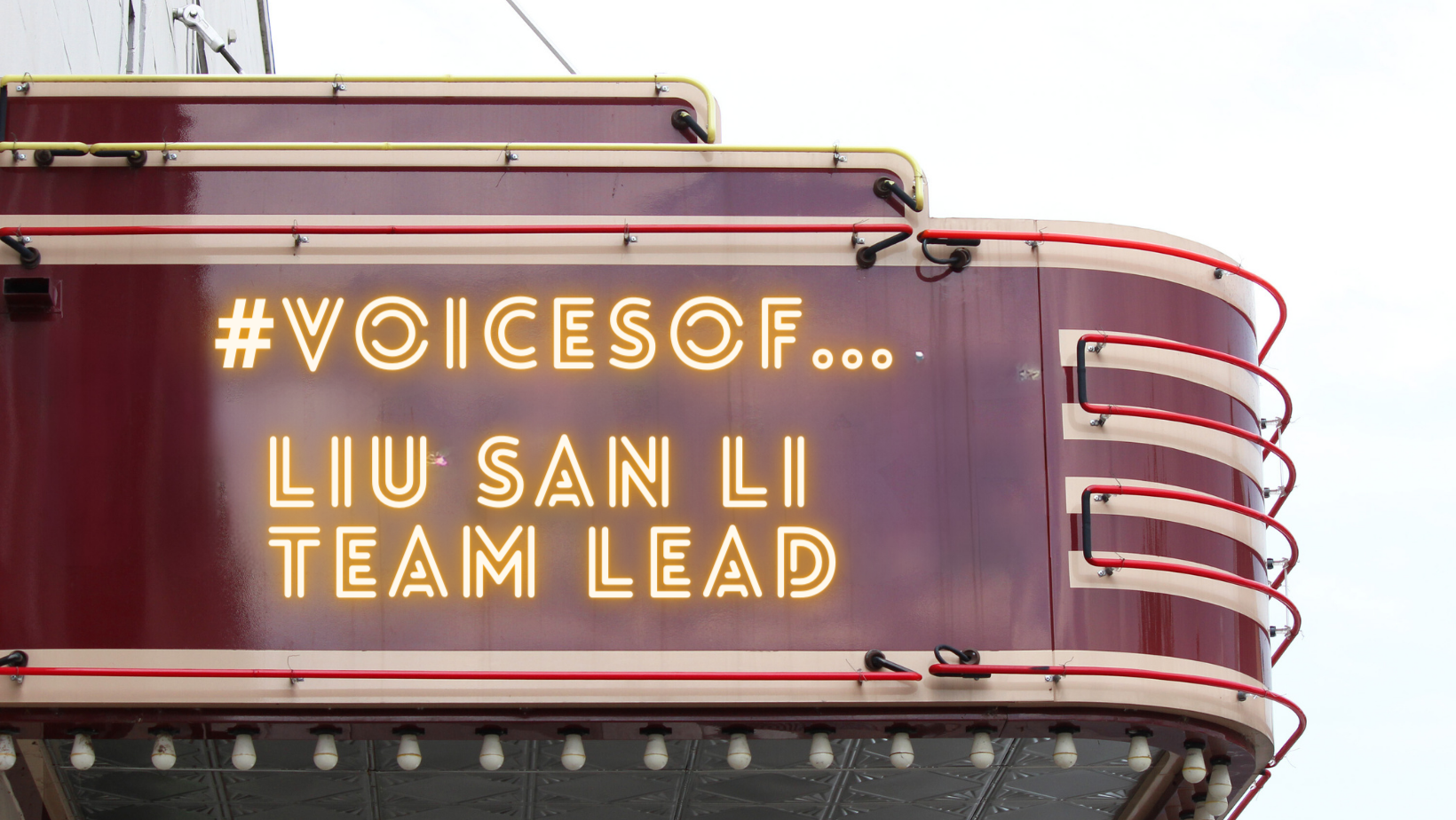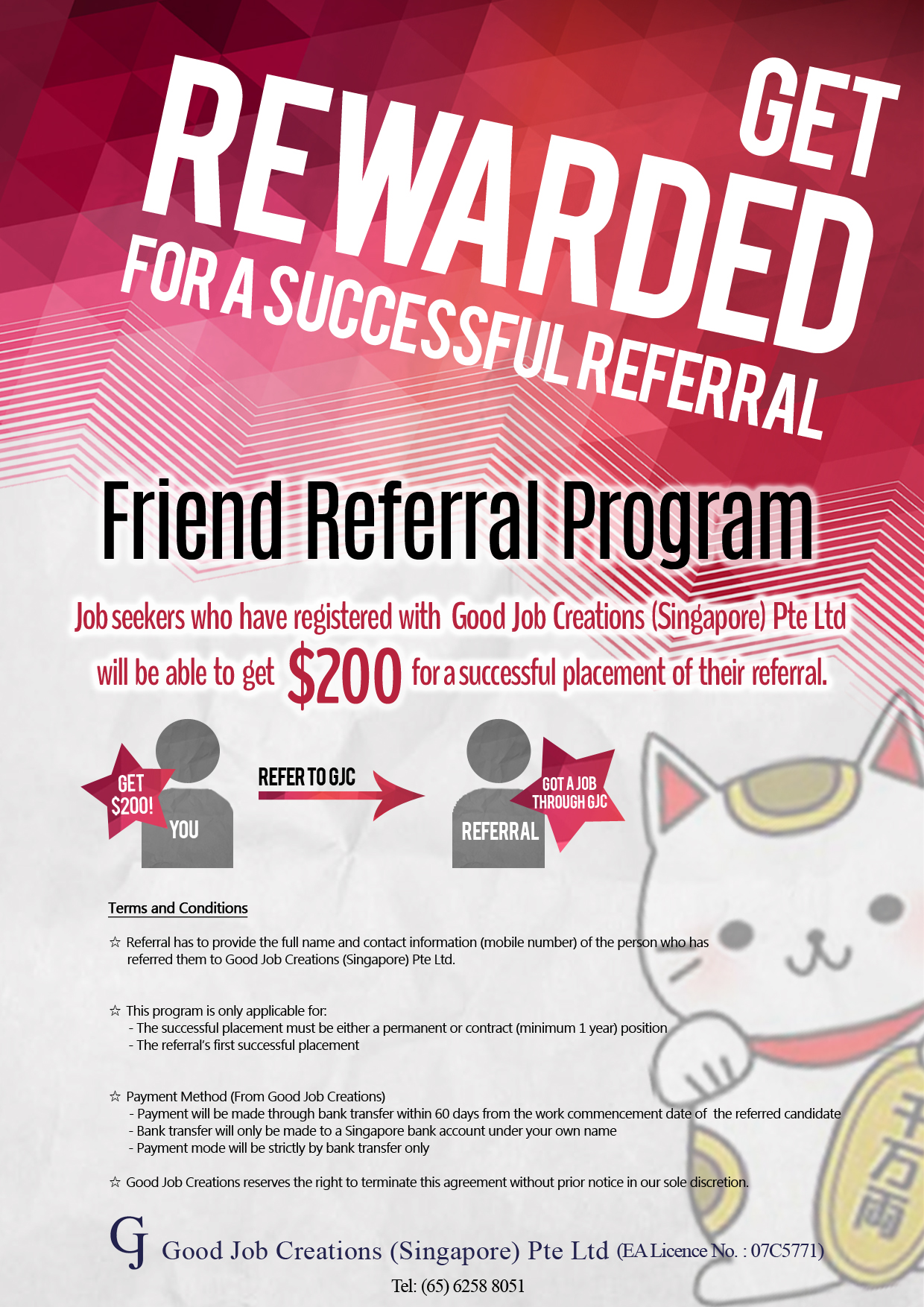#Voicesof… Liu San Li: An Ex-Private Banker & Investment Specialist’ Perspective

Previously a banker of 10 years, San Li has held positions such as a private banker, investment advisor and stockbroker at Coutts, Citibank, DBS and more. He left banking in 2005 and pursued a career as a specialist recruiter for the Banking and Finance sector. Having direct banking and recruitment experiences allowed him to see and analyse both worlds from a vantage point of view.
Recently in March 2023, he joined Good Job Creations as the Banking and Finance Team Lead.
1. Your colleagues have known you to be passionate about your job, and every career has ups and downs. What keeps you going, especially in the face of challenges?
I was fortunate to have turned my passion into my career. At a young age, my relatives exposed me to topics and discussions about the financial market and stocks— I was intrigued and curious about its complexity. I joined the Banking and Finance industry in my early 20’s, stayed for about ten years, ventured into the recruitment industry, and still took on the Banking and Finance portfolio, and the rest is history.
Even the best careers have ups and downs; I understand that the Banking and Finance industry is ever-changing, yet it still piques my interest. I make it a point to stay on track and keep myself updated with the latest trends, educating myself with new knowledge and information about the industry. My passion is the foundation of why I love doing what I’m doing, but I’ve also invested a consistent effort and time, it makes what I do worthwhile, and it’s been a rewarding learning journey for me.
2. If someone decides to do a mid-career switch into Banking and Finance, with its stringent acceptance rate, is it possible? Some may argue that they have transferable skillsets as their advantage.
It is possible, but it’s extremely rare; let me explain. The Banking and Finance industry requires candidates to have had a certain level of exposure in the sector. It is also the most regulated sector in Singapore by Monetary Authority Singapore (MAS). Most key players in the industry find it challenging to train an individual from scratch if the individual doesn’t have the required hard skills. They need plug-and-play candidates with at least 70% Banking and Finance knowledge and hands-on experience.
However, for individuals already in financial institutions such as insurance and securities firms, there’s a slight chance that banks might consider them. Although some might argue that skillsets are transferable, the skills all banks require are hard skills such as head knowledge, hands-on experience, and technical skills.
I can’t guarantee you’ll like the loophole I’m about to give but look at the interviews that feature some of the biggest, most successful bankers. Most of them rose from humble beginnings, whether it was a sales role, admin, etc. They all made their way up through years of hard work, which they all claimed was worth it. So, if you do desire a mid-career switch, you must be willing to start from ground zero.
3.What trends and changes in the Banking and Finance industry should professionals be aware of?What can they do to prevent it?
Professionals should be aware of changes such as Fintech (financial technology), Robo platforms and Artificial Intelligence. Times are changing. With the introduction of highly advanced tech and equipment, what once required the hands of many is replaced with automation. Before Covid-19, the banks were bustling with people who worked at the front desks and booths, and two years later, you realise there’s an increase of more advanced technology; plenty of banking services are now automated.
I advise joining the game because these machines will still require human expertise to improve their technology. Pick up Fintech, Robo and AI and learn to evolve with them, get certified. There’s new knowledge to be learned every day, but don’t be left behind thinking you know everything just because you got certified by a piece of paper.
“There’s new knowledge to be learned every day, but don’t be left behind thinking you know everything just because you got certified by a piece of paper.”
4.As an experienced recruiter, what’s the procedure like for fresh graduates and what’s your advice for those seeking a career in Banking and Finance?
Fresh graduates looking to do so can apply for the Management Associate programs launched by most banks. The new graduates hired are groomed to specialise in a specific area. In the first two years, they will be rotated around the departments, learning about the specialisations of each and getting a ‘taste’ of what each role entails. And after two years, these candidates will be evaluated on their suitability and interest, and from there, they will get a clearer picture of what they will pursue.
My advice is simple: constantly develop yourself, whether it’s your character, knowledge tank, or even your skillset and make sure you’re progressing as you go. Build a strong network with your peers, colleagues, managers, and bosses and get to know them. If you genuinely desire a fulfilling career, you’ve got to grow as you go. Don’t assume you know it all, be humble and teachable.
5.Why did you leave your career in Banking and Finance, and what have you learned after you made a career switch into the recruitment industry?
There was a time when I thought my banking career couldn’t provide me with the organic growth I wanted, and I’m not implying I was right about my perspective then. Nevertheless, I have grown tremendously in the recruitment industry and don’t regret switching careers.
Since joining recruitment, I’ve developed a strong network of professionals from junior to C-level in the Banking and Finance sector. This sparked the development of deep knowledge with my analytical capability beyond private wealth management, such as corporate banking, investment banking, private equity and asset management. I’ve also developed a knowledge of the intertwined dynamics and relationships among all the sub-sectors mentioned above.
6.What are the three most crucial soft skills a Banking and Finance professional should harness?
The first soft skill to adopt is effectively managing your internal stakeholders, from juniors to seniors; this skill helps you communicate and listen effectively to understand the needs and concerns of your team, creates room for mentoring, coaching and builds trust to ensure the result is a job well done.
Next, cultural intelligence and acceptance. It’s essential to learn and respect the culture of others; it breaks the habit of stereotyping when you try to observe their mannerisms, patterns, and how they react to a situation and be flexible around it. Remember this, what we consider normal might be alien to others.
Effective communication is critical, it means being clear and concise and making your intentions known. Avoid beating around the bush or expect people to read your thoughts. By doing so, you can avoid unnecessary conflicts and misunderstandings, increase teamwork and productivity among members.
7.Why is it so important to be financially literate, and how can we learn more about it?
It’s essential to know the basics of managing your finances, apportion how much funds you’ll need from short, mid, and long-term, and setting aside a portion for emergency funds.
With such knowledge, you’ll understand the risk and return of investments better, and you’d be able to discern the motives of bankers and advisors, whether they have your best interest at heart or are merely pushing products that make you fork out money unnecessarily.
Learn from friends who work in the financial and investment advisory field or acquainted professionals. I recommend Stock Investing & Stock Market Research to learn more about investments and then supplement it with Motley Fool’s competitors.
As for financial planning, I would recommend the Singaporean website Money Sense, as I feel its information isn’t attuned to the agenda of product selling, then, I would supplement it with advice from other financial institutions.
Do exercise discernment on every piece of information you receive or absorb.
Interview by Destiny Goh
Marketing Communications Executive

 Photo by
Photo by 